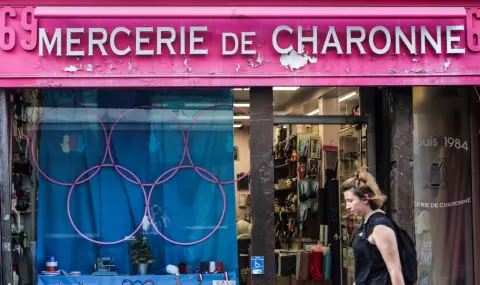Paris authorities have ordered all shops that use air conditioning to keep their doors closed during the day to save electricity, the city's mayor, Anne Hidalgo, announced. "Air-conditioned shops will now be forced to keep their doors closed," she wrote on Twitter, explaining that the measure is necessary "in the current climate emergency and energy crisis."
The head of the Paris administration also cited an article in the newspaper Le Parisien, according to which shops that constantly keep their doors or windows open with the air conditioning on will be fined 150 euros. At the same time, the measure will not apply to bars and restaurants with outdoor terraces.
Shop owners have different opinions. Some admit that even with the air conditioning on, they leave the doors open all the time or occasionally. They say that when the doors of the store are open, more customers come in, and if they close them, the loss of customers will not compensate for the savings from more efficient use of the air conditioning. Others, on the contrary, do not think that closed doors scare away customers and believe that a sign at the entrance with the inscription “It's cool inside!“, on the contrary, will help the cause.
Last week, French President Emmanuel Macron announced in an interview with France-2 and TF1 his intention to prepare a plan for responsible energy consumption for businesses and ordinary citizens. This is primarily due to the fact that France, which is currently forced to buy electricity from Germany due to the shutdown of many nuclear power plant reactors, allows a complete shutdown of gas supplies from Russia and an increase in the load on the power grid.
The plan for “energy sobriety“, as Macron called it, must “contain specific goals and numerical indicators“. In particular, it will indicate “useless lighting“ objects in cities, on which issue consultations will be held with local authorities. The head of state expressed hope for the awakening of collective responsibility among citizens, including through the example set by state institutions.
